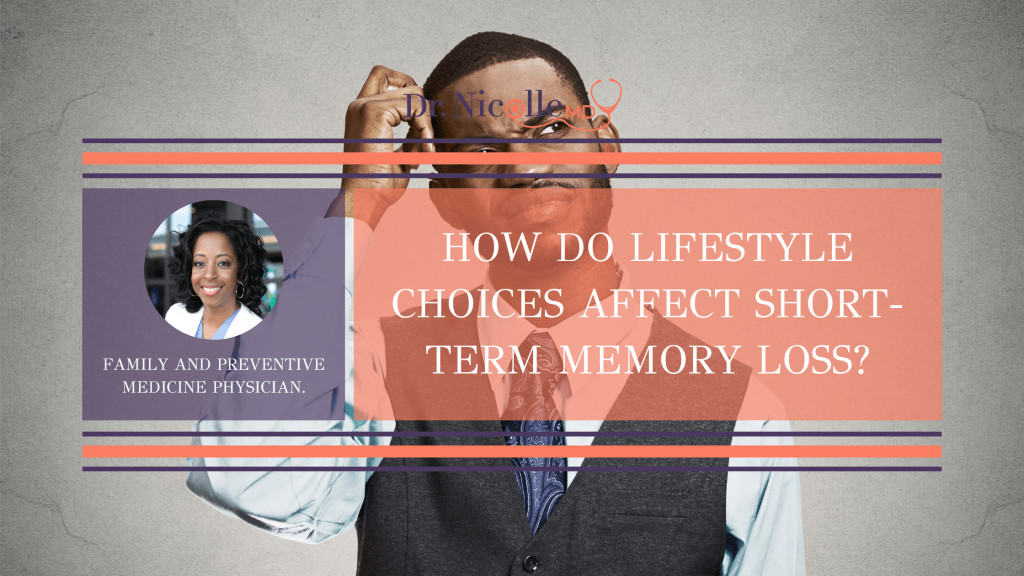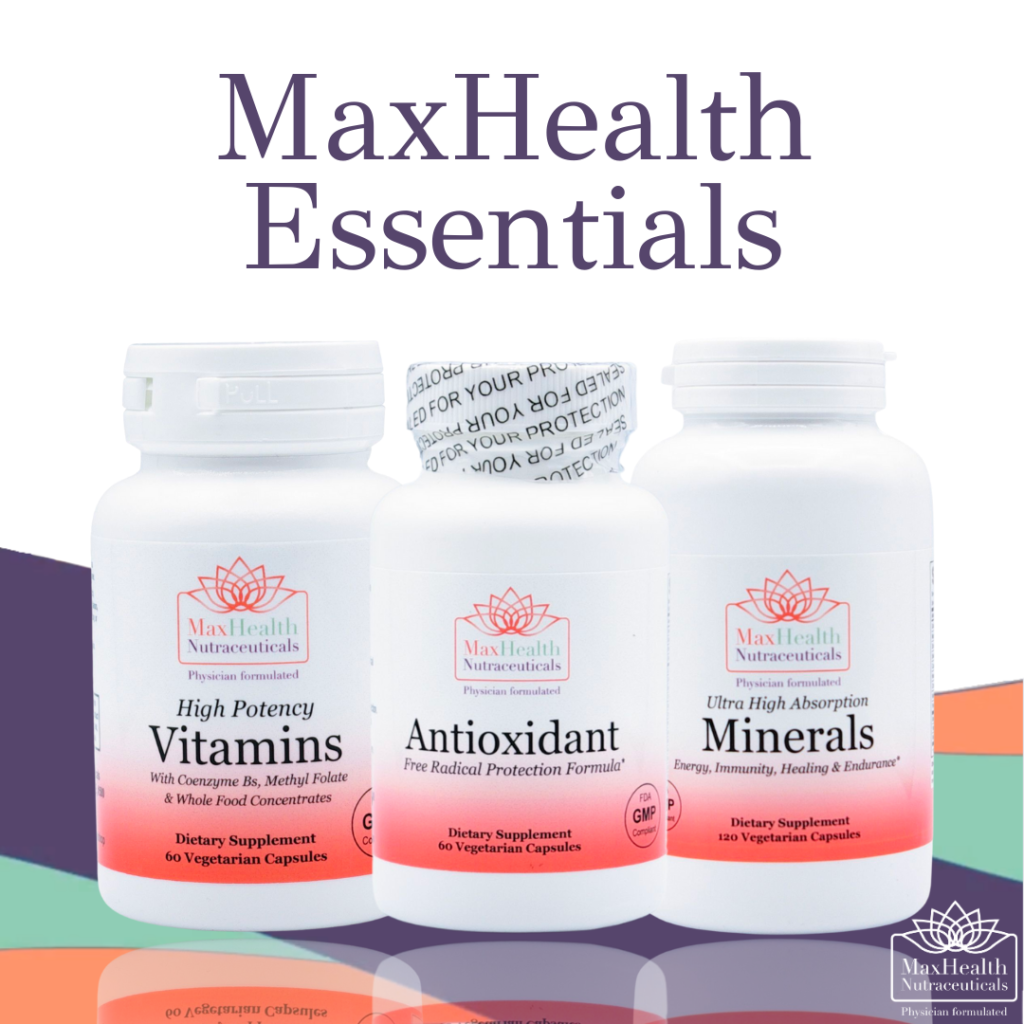

It’s Wellness Wednesdays! We’ll talk about the impact of lifestyle choices on short-term memory loss. Short-term memory loss can be a serious issue, and it’s not always easy to determine the exact cause. This is why it’s important to take a holistic approach when it comes to dealing with this condition.
The brain is a complex machine. It has been shown that memory loss can happen due to a poor diet, smoking, exposure to environmental toxins, and many other factors. It can also be triggered by the effects of stress on the brain, as well as by the aging process, a fever, or even a head injury.
Many people do not realize that these factors can lead to short-term memory loss. If you notice that you seem to have trouble remembering specific information, but you have no memory loss in general, then you may have a short-term memory loss issue.
Although several medical conditions can affect memory, there are other things that also influence the brain. Lifestyle choices can have a big impact on short-term memory loss.

Consider these common causes of short-term memory loss
1. Anxiety and stress.
When you’re worried all of the time, it’s harder to remember things. Both anxiety and stress can adversely affect your short-term memory.
- Research studies show that stress can increase cortisol levels in the body, and this can affect brain function, including memory.
- Stress can have a negative impact on memory and cognitive functioning, which are two of the most important outcomes of sleep loss.
- When you’re focused on things that cause you stress or anxiety, it’s more difficult to remember important tasks, names, or events. Your mind isn’t designed for multi-tasking, so these things can affect your memory.
- Exercise and relaxation techniques help reduce stress and anxiety. Try meditation, yoga, going for a walk in natural surroundings, or participating in sports on a regular basis.
2. Not sleeping enough.
Sleep is a vital component of brain function. The lack of sleep can have serious consequences for the body and mind.
- When you don’t get enough sleep, it’s harder to remember things or pay attention during the day. In addition, your cells can’t restore themselves and heal. This affects your brain and other parts of the body.
- Sleep deprivation can lead to loss of short-term, or working, memory, which can impact our ability to do our daily routines, and can even contribute to the development of dementia.
- Experts recommend getting at least seven or more hours of sleep per night.
3. Poor diet that lacks essential vitamins and minerals.
Your brain needs food just like your body. A poor diet can affect your short-term memory. If you’re not eating enough or only eating junk food, your short-term memory suffers.
- Researchers have found that vitamin B6 and others are important for the brain.
- A high-fat diet with fast food, chips, and fried food can hurt the brain.
- Switching to a nutrient-rich diet with whole foods, fruits, and vegetables can help turn diet-induced memory loss around.
4. Smoking and alcohol.
Even a small amount of nicotine can affect the brain and body. Research shows that smoking can affect brain cells. Cigarettes and cigars affect the lungs and heart, so less oxygen gets to the brain.
- Alcohol can also affect short-term memory and judgment.
- Try to avoid smoking and alcohol to enhance your memory.
5. Loud music.
You’ve probably heard that listening to loud music can damage the ears and hearing, but are you aware of its impact on short-term memory?
- Several studies have found that constantly listening to loud music can interfere with how the brain recognizes normal sounds. The normal brain processes are interrupted, so it’s harder to remember things.
- Loud music can actually damage the nerves in the brain.
- This doesn’t mean you should stop listening to music. In fact, some classical music helps boost brain activity. The key is to avoid playing any type of music extremely loudly.
- If your friends or family members are complaining about the noise, this means it’s time to turn it down.
6. Not getting enough vitamin D.
Vitamin D is responsible for multiple body functions, and memory is one of the ones that are affected. The lack of vitamin D in the body can lead to cognitive or thinking issues.
- To increase your vitamin D levels, spend more time in the sunlight, eat vitamin D rich foods, or take supplements with vitamin D.
If you suffer from short-term memory loss, see your doctor to determine if a medical reason is behind it. In any case, there may be lifestyle changes you can make to sharpen your memory.
I would love to give you a free resource sheet to support your overall wellness. Click the button below to receive your gift.
I really wanted to talk about this topic today because your natural health and wellness is important. You can adopt healthy lifestyle practices that improve your health, your environment, and enrich your life, which can in turn improve the lives of those close to you. You have the power to break the cycle of poor health, including chronic disease, so that you can leave a legacy of health to your loved ones.
I use functional medicine and lifestyle medicine as the first line of treatment, before medications, to treat lifestyle-related chronic diseases. Lifestyle-related chronic diseases include diabetes, hypertension, obesity, and some cancers, just to name a few. Lifestyle practices, such as eating a whole-food plant-based diet and regular physical activity, can help you lose weight, reverse some chronic diseases (if you suffer from them), and can even help you with detoxification. In certain cases, these approaches may even outperform pharmaceutical therapy.
But I always tell my patients that conventional medications may be appropriate at this time to prevent catastrophic illness, but over time, you can work to make the necessary lifestyle changes to possibly reduce and/or eliminate medications. Please remember to always consult your physician for your particular needs and circumstances prior to making any decisions whatsoever.
Is Dietary Supplementation Right For You?
For some people, vitamin and mineral supplements offer important health benefits. Supplements are designed to fight deficiencies found in our diet and complement the food we eat regularly. Supplements are basically “helping hands” to our daily food.
If you suspect that you aren’t getting the nutrients you need, consider shifting your focus from supplements to eating better.
But it is very important to note that we are not eating the same foods we ate years ago because the soils have been depleted of critical nutrients through current industrial farming practices. And because the soil is not as good as it used to be, the food supply (grown from the depleted soil) is not as good as it used to be. For example, you are not getting the same levels of magnesium as you would have gotten 30 or even 50 years ago.
Second, much of the food has been genetically altered, which can impact the inherent and unique nutritional composition that each food possess. For example, ancient einkorn wheat has less gluten, more protein, more Vitamin A, and more beta carotene, than modern genetically modified wheat.
Third, the toxic load in the environment today is much higher than 100 years ago. We can see this with global warming, toxic landfills, polluted oceans and waterways, etc. Toxicity levels interfere with nutrient assimilation and absorption not just into the foods, but into our bodies as well.
So… if you are unable to eat better, the supplements in my MaxHealth Essentials Bundle may provide the extra boost you need.
These are my favorite Wellness and Immune-Boosting Supplements to use! This MaxHealth Essentials Bundle will ensure you have the intake of the important vitamins, minerals, and antioxidants to decrease inflammation and boost your innate wellness day and night. Taken together, it’s a solid plan for increasing your body’s natural resiliency.
For best results make sure you use the supplements with dietary changes including a whole food plant-based diet, regular exercise (at least 2-3x per week), regular sleep (8 hours per night), and intermittent fasting (at least 1-3x per week).
Weight Monitoring
Since weight management is very important in combatting chronic diseases, I recommend that you be mindful of your weight and its fluctuations, and that you monitor your weight AT LEAST on a weekly basis. I recommend a scale that includes a body composition monitor (*this scale cannot be used with a pacemaker or other implanted devices).
Physical Activity
Physical activity (or exercise) can improve your health and reduce the risk of developing several chronic diseases like high blood pressure, type 2 diabetes, and cancer, just to name a few. Physical activity can improve your mood, boost your immune system, help you maintain a healthy weight, and is a great way to detox your body!
I often recommend yoga and resistance training for physical activity, but as you are aware, there are plenty of forms of “movement” that you can do! But for the basics, especially if you’re just getting started, yoga and resistance training are where I would start.
Yoga
Yoga can be a great way to improve your strength and flexibility, manage your stress, improve your heart health, and lose weight! I recommend using a grounded yoga mat to connect yourself with the earth and reduce inflammation.
Resistance Training
Resistance training is the mainstay for overall health. It not only has beneficial effects on reducing body fat, it also increases muscle size and strength. Check out some basic dumbbells/free weights that I recommend to everyone.
Another alternative for dumbbells/free weights are resistance bands. They are great for physical therapy, yoga, strength training, and excellent for traveling.
Remember, living a healthy lifestyle including eating a whole foods plant-based diet, regular physical activity, and reducing stress are the best ways to maintain a healthy weight. Let me know what you think in the comment section below.
Some of the links in this article are "affiliate links", a link with a special tracking code. This means if you click on an affiliate link and purchase the item, we will receive an affiliate commission.
The price of the item is the same whether it is an affiliate link or not. Regardless, we only recommend products or services we believe will add value to our readers.
By using the affiliate links, you are helping support our Website, and we genuinely appreciate your support.
Last updated on January 28th, 2022 at 03:25 am

Minimize Medications. Maximize Health.
Are you super busy but need to take control of your health? Are you tired of being tired? Subscribe to my “Minimize Medications, Maximize Health Blog” and I’ll give you 7 Tips to Get Healthy in No Time absolutely FREE.






